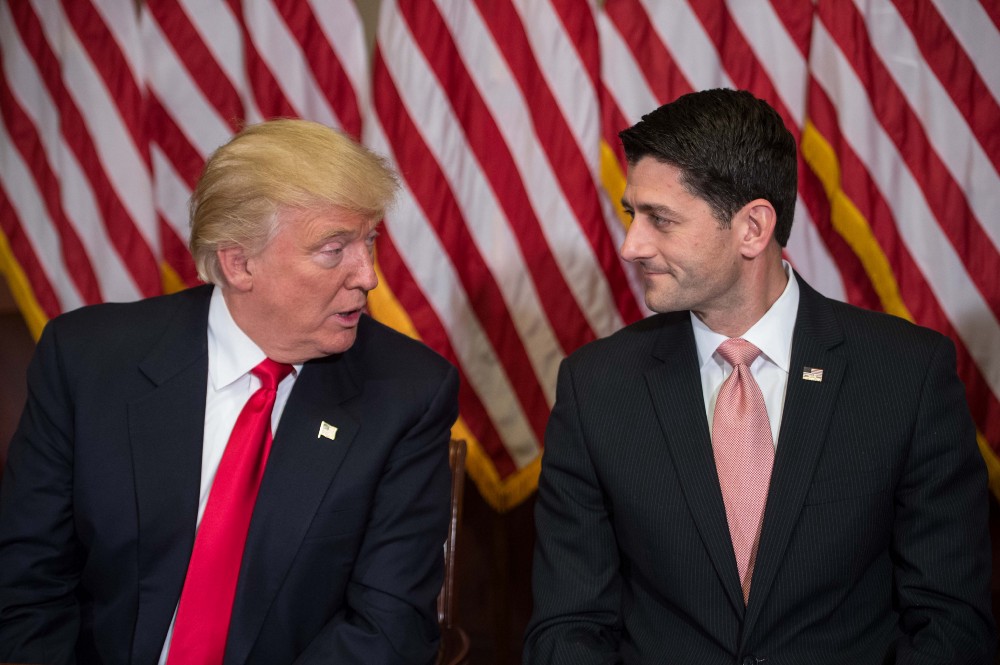
“An impeachable offense,” then-Representative Gerald Ford said in 1970, “is whatever a majority of the House of Representatives considers it to be at a given moment in history. Conviction results from whatever offense or offenses two-thirds of the other body [the Senate] considers to be sufficiently serious to require removal of the accused from office.”
The Constitution hardly contradicts Ford. “The President, Vice President and all civil Officers of the United States, shall be removed from Office on Impeachment for, and Conviction of, Treason, Bribery, or other high Crimes and Misdemeanors,” Section 4 of Article II declares. Neither that section nor any other part of the Constitution defines the term “high Crimes and Misdemeanors.” In its rare brushes with the concept, the Supreme Court has dodged that task of definition, referring unhelpfully to “the power of impeachment” as “a compulsory mode of getting rid of officers guilty of high crimes and misdemeanors.” Scholars admit a lack of guidance.
The irony is that the Framers settled upon this maddeningly opaque phrase as a cure for vagueness. “Maladministration” was the wording George Mason proposed, along with treason and bribery. James Madison objected, citing the potential for the Senate to abuse the capacious term. The phrase “other high crimes and misdemeanors,” they agreed, was more precise.
The political nature of impeachment cuts both ways: While a House so inclined could impeach at will, a House disinclined can refuse ad infinitum.
If the Framers were drawing on English law — which is likely, given not only context but the fact that the language of treason, bribery, and impeachment comes from that jurisprudence — “high” may have a literal meaning, descriptive of those to whom impeachment would apply: exalted beyond normal reach. The American take on impeachment seems consistent. Impeachable offenses, according to Alexander Hamilton, are “those offenses which proceed from the misconduct of public men, or, in other words, from the abuse or violation of some public trust,” as Hamilton put it in Federalist No. 65.
Impeachment was intended as a political remedy. Offenses justifying impeachment “are of a nature which may with peculiar propriety be denominated POLITICAL,” Hamilton explained, “as they relate chiefly to injuries done immediately to the society itself.” Justice Joseph Story echoed Hamilton in his 1833 Commentaries on the Constitution, noting that impeachment was “a proceeding purely of a political nature.” Impeachment, per Story, allows the legislature to “secure the state against gross official misdemeanors.”
Impeachment is not a criminal proceeding. After being convicted under an article of impeachment and removed for committing a crime, an ex-official still may face criminal charges. But some scholars argue that only indictable crimes can be the basis for impeachment; others, that anything that renders the occupant of an office unsuitable will suffice. Under English law, impeachment was not pegged to an indictable crime. At least one U.S. federal judge has been impeached, convicted, and removed for an offense short of a crime: Halsted Ritter. In 1936, Ritter was acquitted of lawbreaking but convicted under an article of impeachment for “bring[ing] his court into scandal and disrepute, to the prejudice of said court and public confidence in the administration of justice.” Other judges have likewise been impeached for transgressions short of, or sometimes not even resembling, indictable crimes, including “abuse of power,” “intoxication on the bench,” and “refusing to hold court.”
Ultimately, this argument, even more so than most tiffs among legal scholars, is moot. The Congress that impeached President Andrew Johnson demonstrated that impeachment is not contingent upon criminality. Most articles of impeachment against Johnson related to the removal and replacement of a cabinet member without congressional consent. The 10the article of impeachment against Johnson, however, which labeled him “unmindful of the high duties of his office and the dignity and proprieties thereof,” alleged a different nature of offense. The article charged Johnson with “mak[ing] and declar[ing], with a loud voice certain intemperate, inflammatory, and scandalous harangues, and therein utter[ing] loud threats and bitter menaces.”
Although Ford’s effort to impeach Justice William O. Douglass for alleged financial improprieties — the undertaking that occasioned his commentary on impeachment — failed, it wasn’t for some flaw in Ford’s understanding of impeachment. Like Hamilton and Story, Ford recognized impeachment as a political mechanism. In remarks when he began the quest to impeach Douglas, Ford noted that “impeachment is a unique political device; designed explicitly to dislodge from public office those who are patently unfit for it, but cannot otherwise be promptly removed.”
Ford was right. Not only is there nothing to bar the House from impeaching on whatever grounds a majority defines as meeting Section 4’s criteria, a Senate conviction is final and not subject to judicial review, as hapless Halsted Ritter learned upon attempting to challenge his removal. While there are many open questions — whether an act (or failure to act) must have been committed while in office, for example — these, too, are at the discretion of the House and Senate. It is the Framers’ two-thirds majority requirement for conviction in the Senate, not their cryptic “high Crimes and Misdemeanors,” that governs the use of impeachment.
President Donald Trump has done more than enough to merit impeachment, and questions remain about his ties to Russia, direct or indirect. Most notable, of the grounds that already exist, is Trump’s open violation of the Emoluments Clause. Trump could be impeached any time — or never. Impeachment’s political nature cuts both ways: While a House so inclined could impeach at will, a House disinclined can refuse ad infinitum.





